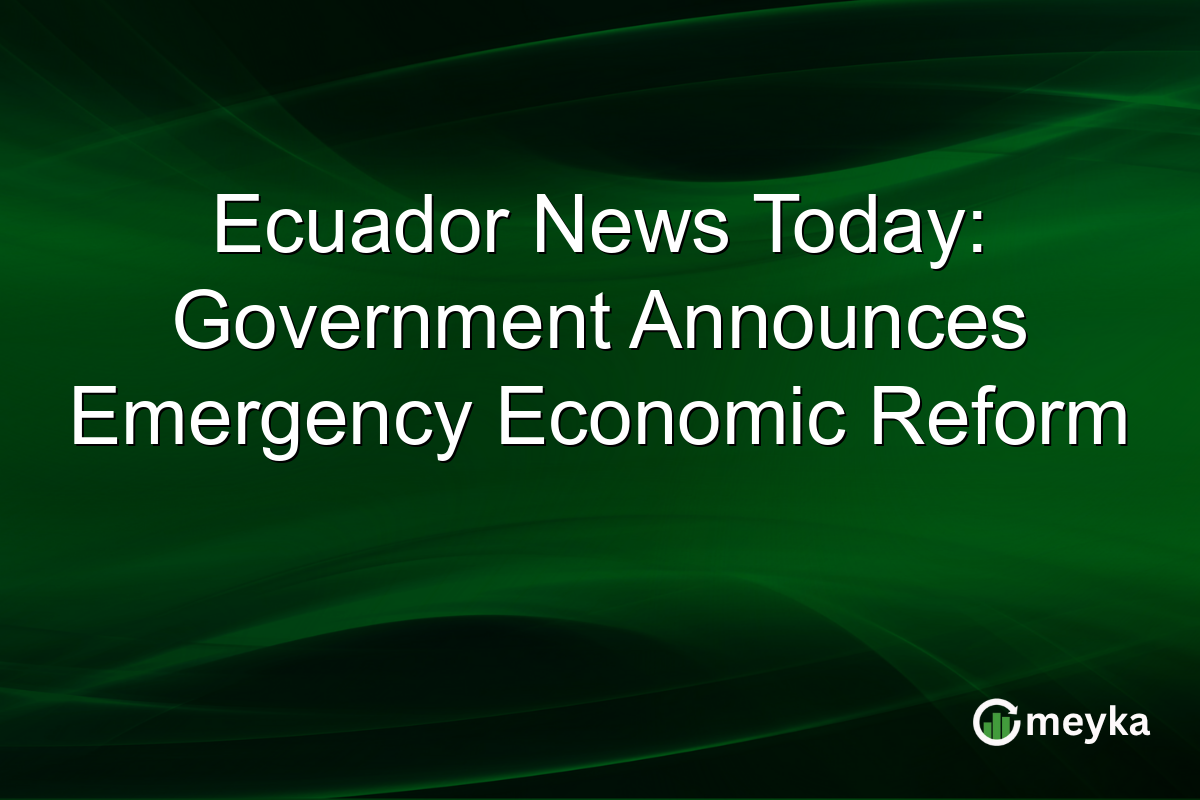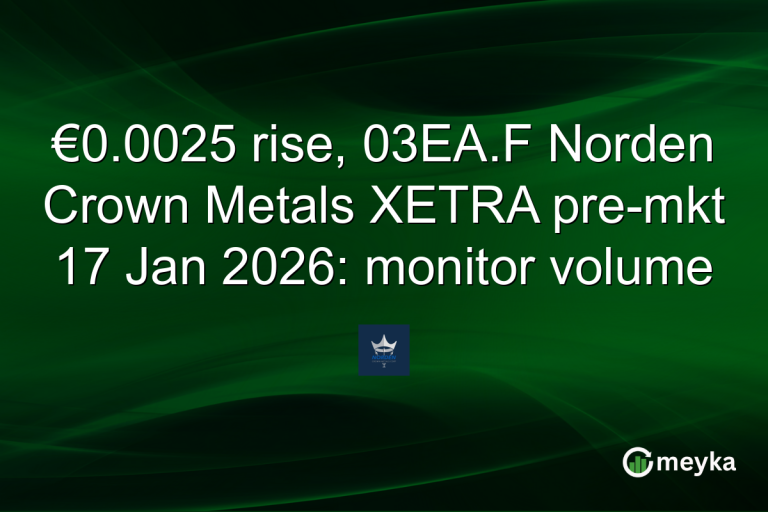Ecuador News Today: Government Announces Emergency Economic Reform
Ecuador’s government has declared a state of emergency, unveiling an urgent economic reform package aimed at tackling rising sovereign debt and inflationary pressures. The move, announced today, includes potential tax hikes and currency stabilization efforts. These reforms are crucial for meeting Ecuador’s 2025 bond obligations and have already ignited local market volatility. Investors are keenly observing potential International Monetary Fund (IMF) involvement as Ecuador navigates this economic inflection point.
The Reforms Unveiled
Today, Ecuador unveiled its emergency economic reform package designed to stabilize the nation’s fiscal outlook. Key measures include possible tax increases and currency devaluation options. These steps are intended to address the nation’s growing debt, which has become a significant concern for policymakers. This announcement has come amid fears that Ecuador may struggle to meet its 2025 bond obligations, raising eyebrows among international creditors and analysts. By tackling these issues head-on, Ecuador aims to reassure both domestic and international stakeholders of its financial stability.
Market Reactions
The immediate reaction to the Ecuador economic reform 2025 was significant. Local markets experienced a sharp downtick, reflecting investor anxiety over potential tax burdens and currency shifts. Analysts are particularly focused on whether these reforms will stabilize the economy or spur further volatility. The potential impact of currency devaluation has been a major talking point, with investors wary of inflation spikes affecting purchasing power. This market sentiment underscores the urgency for clear communication from Ecuador’s government to restore confidence.
IMF’s Role and Future Prospects
The possibility of IMF intervention has become a focal point in discussions regarding Ecuador’s economic reform. The IMF and Ecuador have a history of cooperation, and analysts suggest that additional support or restructuring talks could be necessary to ensure fiscal sustainability. External experts believe that IMF involvement could provide a stable framework for implementing reforms, potentially enhancing investor confidence. Looking ahead, the government’s ability to effectively navigate this economic landscape will be pivotal in determining Ecuador’s financial health and reputation on the global stage.
Global Investor Concerns
For international investors, the Ecuador government policy changes pose both risks and opportunities. While the reforms aim to ensure long-term stability, the immediate implications may deter investment. Heightened risk perceptions linked to Ecuador currency devaluation and increased fiscal pressures could affect future investment flows. However, successful implementation of these measures may bolster investor confidence and open doors for new opportunities, particularly if the reforms align with broader economic stability and growth strategies. Investors will closely monitor government actions and possible IMF collaborations for further guidance.
Final Thoughts
Ecuador’s economic reform announcement represents a pivotal moment for the country’s financial future. While the proposed measures aim to stabilize debt and curb inflation, they also pose significant challenges that will need careful management. The government’s ability to implement these reforms without triggering heightened market volatility will be critical. Additionally, potential IMF collaboration could offer a structured pathway for recovery. Investors and analysts will continue to scrutinize developments closely, as Ecuador’s next steps will be key to restoring both domestic and international confidence. In uncertain times, clear strategy and international cooperation could be Ecuador’s strongest assets.
FAQs
Ecuador’s economic reforms include potential tax hikes and currency stabilization measures aimed at addressing sovereign debt and inflationary pressures. These steps are crucial for meeting 2025 bond obligations.
Local markets reacted with volatility following the announcement of reforms. Investor concerns about potential currency devaluation and tax changes have driven market fluctuations.
The IMF may play a crucial role in Ecuador’s reforms by offering financial support or restructuring assistance. Their involvement could help stabilize the fiscal situation and restore investor confidence.
International investors worry about Ecuador’s ability to manage debt and inflation. Concerns over currency devaluation and fiscal pressures are key factors impacting investment decisions.
Ecuador aims to stabilize its economy by addressing debt and inflation. Successful reforms could enhance financial stability, meet bond obligations, and restore investor confidence globally.
Disclaimer:
This is for information only, not financial advice. Always do your research.






